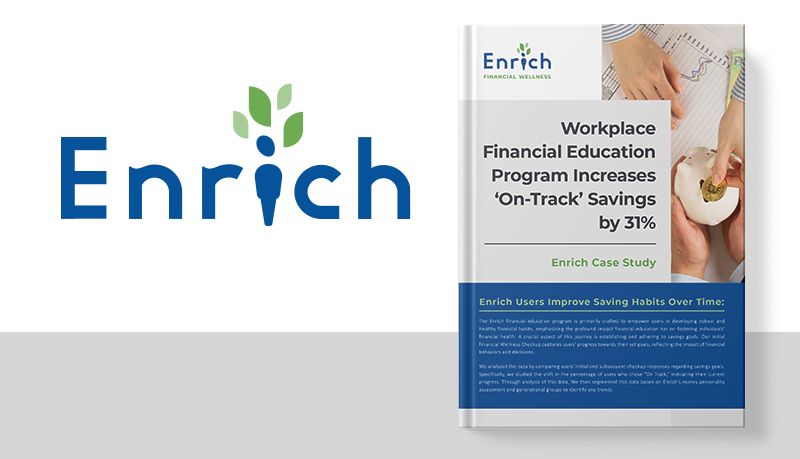Workplace Financial Education Program Increases 'On-Track' Savings by 31%
Feature Points
Financial Wellness Across Different Money Personalities and Generations
The impact workplace financial education programs have on employee financial goals and saving habits
Description
The Enrich financial wellness program's case study reveals significant improvements in users' saving habits over time. Emphasizing the importance of financial literacy in shaping individuals' financial well-being, Enrich aims to empower users to develop strong financial behaviors.
The study focuses on tracking users' progress toward their savings goals using the Financial Wellness Checkup. By comparing initial and subsequent responses, it identifies a notable shift in the percentage of users considered "On Track."
The data is further segmented based on Enrich's money personality assessment and generational groups, uncovering interesting patterns in users' financial stress and behavior habits.
The study provides unique insights into diverse Money Personalities, highlighting distinctive financial behaviors within each personality that significantly impact users' paths to financial stability. It explores distinct personalities like Cautious, Relaxed, Optimistic, Confident, Present Focused, Future Focused, Social, Elusive, Organized, Fun Seeking, and Skeptical, showcasing how individual traits and attitudes influence financial progress.
Additionally, it dives into generational differences, highlighting varied approaches to budgeting and financial habits among Gen Z, Millennials, Gen X, and Baby Boomers. The analysis extends its scope to examine Enrich's influence across different industry verticals, including workforce employees, credit union members, bank customers, health plan participants, and advisor clients.
Overall, the study emphasizes the importance of maintaining consistent saving habits and the role Enrich plays in empowering users to improve their overall financial well-being.

